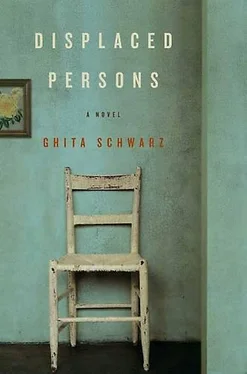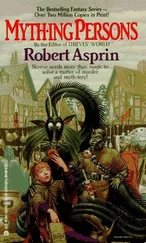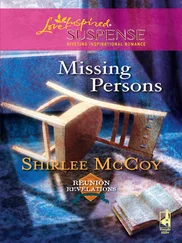Sima. You’re being terrible.
Now I am the terrible one. I don’t know why I do anything for you anymore, or for her. She’s on vacation, I bring her all her favorite foods, she won’t eat them, this one is bad for her, that one has too much dairy. Why do I do it? I should forget it. I should forget everything.
Chaim sipped. He wanted to get up to add more hot water to his mug, but to get up, even to move to the stove with his back to her, would be to prove her right, that he fled rather than fight.
“I’ll say something,” he said in English. “I’ll talk to her.”
He waited until the next morning to approach. He found his daughter in the kitchen, scooping large amounts of coffee grains into the filter.
“Maybe you can put it a little less harshly when you speak to your mother,” he began.
“I don’t think it’s a good idea to discuss it.”
“I wasn’t going to discuss anything,” Chaim said. “I just wanted to say it.”
They poured their coffee in silence.
“Your mother has arranged for us to make a little film.” The words came out of his mouth before he realized he was raising the subject.
“I heard,” she said.
“You did? What did you hear?”
“Ma just said-you know, she was doing it, she hoped you would do it-” Lola sat at the table, began cutting at an apple, the same neat gesture her mother used.
“But you don’t think I should do it. I think you’re right, the Spielberg project makes me a little uncomfortable too.”
“I didn’t say that. That’s not what I meant yesterday. Anyway, the movie has nothing to do with us. With real people.”
“But you think I shouldn’t do it.”
“Just the opposite, Dad. I think it would be-I mean, but only if you wanted to.”
“When did your mother talk to you about it?” So they talked about him. That was new.
“Couple of days ago.” She looked up at his face for a moment, then away again. “She said you can still cancel.” Something in her voice was hesitant. Her mother must have said something to her much earlier, long before yesterday’s argument. Did Lola realize then that he would be afraid? Coward, she might be thinking now. Shirker.
Her face was turned to her plate, concentrating on the apple. She cut what remained of it into thin slices, saying nothing, his strong-willed daughter, of whom he was asking advice, genuine advice, for perhaps the first time.
“Sorry, Dad,” she finally offered. “I really don’t have an opinion.”
HE HAD A BURDEN of shopping bags to drag home. He supposed he should take the bus, make sure he arrived home with enough time to lay out the food, make everything comfortable for Sima, who surely would be tired from the talking and remembering.
But he wanted to walk. The cool April air would clear his mind, and the mile on a busy Saturday street would do him good. A man needed exercise. He looked at his watch: it was almost eleven. He still had plenty of time to come home, prepare the table and plan what to say. In fact, the walk would save him time. He could think as he walked, pacing his points to the beat of the warm bagels and cheeses tapping his legs, even and steady.
He passed the movie theater. Years ago they had all gone to see a new documentary, many hours long, that profiled old men who had worked in the crematoria of the camps. There was a special screening for survivors in New York, and Pavel had gotten Chaim a ticket, because Fela hadn’t wanted to go. Survivors would be able to sit through it, or so it was advertised; the film had no blood and no hunger, only old men, now more or less healthy, living in Israel, speaking. But Pavel had lasted ten minutes. Chaim had been able to watch the whole way through.
There had been a scene in the film where a man had stopped speaking. The man had been describing something terrible, not ashes and flesh, but something personal, a conversation he had overheard between two people, one on the way to her death. He didn’t want to tell what he had heard. But the filmmaker and his translators had told him: You must tell it, you must. You know that you must. You must, you must , spoken in the film in French and in Yiddish, written on the film in English subtitles. The scene hurt Chaim for reasons he couldn’t explain to himself. But the man had been witnessing for hours of film. Already the testimony caused him much pain. He was testifying to all the crimes he had seen in his youth. But he himself was not on trial. Why was he forced to add this small piece? Was the piece worth more than the man’s wish to rest his memory, to keep a woman’s death face private, to sleep without that particular dream disturbing the night? Why must he? thought Chaim. Why the word must ?
HE TURNED THE CORNER on Broadway, walked slowly toward the river. It was close to eleven. A father and two children were walking their bicycles toward Riverside Park. Lola had jogged there in the mornings during her visit, even when it rained. She had become very fit.
With Lola gone, their life had regained its peace and emptiness. Chaim and Sima returned to their own schedules, no center to gravitate toward, each separate from the other, working, sometimes reading alone, sometimes a movie together. No competition, just peace. And affection-Sima was still, after so many years, an affectionate woman. She touched and caressed. After thirty years of marriage she no longer walked around with no clothes, teasing him into bed, but still they had their nights of intimacy, once a week, much more, he knew, than others far younger than he.
There were nights he could talk for hours to Sima. But when pushed for something to say, he became trapped, afraid of hearing how he sounded, afraid of being corrected. To plan to say something, one had to be careful, eloquent, poetic. That was what speaking was for. In his day-to-day life he was successful at sounding quite refined, he thought, even at rambling too much to his friends and coworkers. But to speak of his childhood-he didn’t know how to make it come out clear. It wasn’t so clear in his own head, and he believed he preferred it that way. Besides, did these cameramen really care what he had to say? He had been on the run for most of the war, and sometimes Americans lost interest if one did not say the words concentration camp . As if what gave the experience its importance was the form of torture one had endured, rather than the loss of everything, mother, father, family, culture, language. They preferred violence-the gory details, as Lola would say-to grief. Or perhaps people simply liked tales that matched with the pictures they had already seen.
Chaim fiddled with the lock in the door. What would he do? It was so easy for his wife. She was quiet and careful in public, but when telling stories she became a comedian, making fine and elaborate tales about everyday business, a drive to the airport, a trip to the shoe store. Her stories from forty years ago came out like folktales, varnished and distant, colored and shaded, not photographs but paintings. He already knew what story she would recount over lunch, the one with her father making his favorite joke to her mother, in Siberia: You know, Dvora, one day, you’ll come to the table and say, Berel, would you like more bread? And I’ll say, No, my dear, no thank you. Sima would let a second go by, a pause. And then the punch line: No thank you, I am full. The way Sima told it, it still sounded funny.
The bags suddenly felt heavy. He lifted them into the kitchen, tried to unpack them as quietly as possible, so as not to disturb the filming. Perhaps they would be tired after all the morning work. Perhaps he could speak better if he went to them alone, to their offices. Perhaps he did not have to do the Spielberg at all; he could call up the Yale people, the ones who did not like family involved. Surely the cameramen in his home would be relieved to have one less interview today. It was one thing for them to hear the dramas of Sima’s childhood; she knew how to keep her listeners rapt and pleased. He was a different story. It couldn’t be so interesting for them, just to see a man suffer.
Читать дальше











